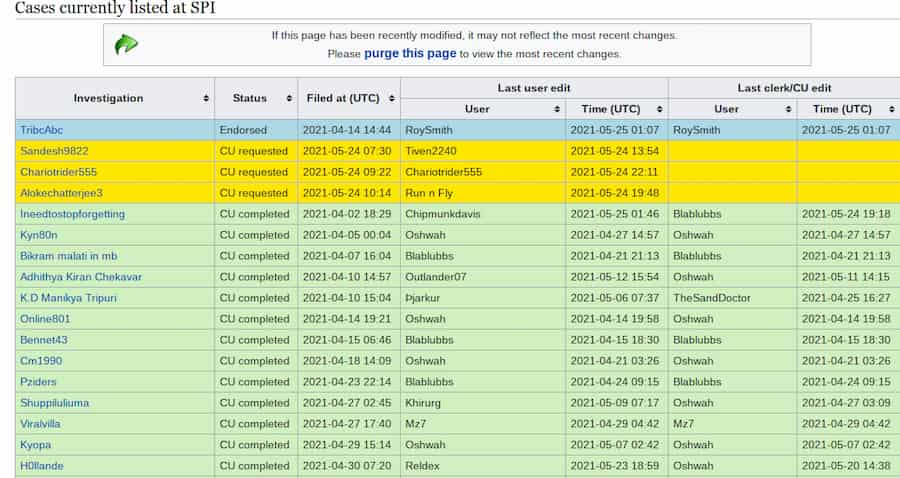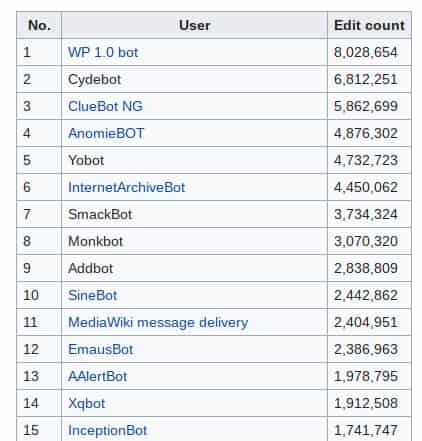Absolutely Fascinating Wikipedia Terms – Sock Puppets , Meat Puppets, Etc.
Key insights
- Wikipedia has its own culture. Knowing the jargon will help you navigate the online encyclopedia.
- There are terms in different categories: about users, policies, creating content, and references.
It’s hard to overestimate the power of Wikipedia. While some other websites could have a bigger effect on your company’s reputation or SEO, few of those websites are edited by the general public.
To understand and leverage Wikipedia, you need to speak its language. Knowing these terms will not only give you a head start into working with Wikipedia the right way but also provide insight into the politics behind it. Wikipedia’s jargon is in large part concerned with transparency: knowing who edits what and making sure each article is as unbiased as possible.
Wikipedia terms about users
Sockpuppet
A sockpuppet account hides the identity of its user. Often, a sockpuppet account is not the only account of said user but an alias (sometimes different aliases to cover up an identity). By using a sockpuppet account or different accounts, a user hopes to conceal their true identity and avoid being caught for a conflict of interest.
Another method of using sockpuppet accounts is a so-called ‘good hand, bad hand’ approach, in which one account is constructive while another account is the “Mr. Hyde” that makes destructive edits.
When other users suspect edits are being made by a sockpuppet, a sockpuppet investigation may follow. Such an investigation is conducted by administrators and clerks. Clerks have many of the same tasks, but not the same clearance as administrators.
Meatpuppet
A term that is strongly related to the sockpuppet is a meatpuppet, which is an editor brought into a discussion to sway the vote one way or another. In other words, a sockpuppet is an alias, where a meatpuppet is a gun for hire.
Sleeper account
A popular way to circumvent an investigation into these practices is to reactivate a sleeper account. A sleeper account is simply an existing account that hasn’t been used for a while. A user might operate a sleeper account to create the impression of posting in good faith using a reputation that has already been established.
Döppelganger account
A döppelganger account is another important username term to understand. Using döppelganger accounts is a legitimate way to have multiple accounts. Some users claim usernames that are closely related to their own username to prevent others from impersonating them or to create a username for each language they work on.
Piggybacking
Piggybacking means you’re using someone else’s account to make edits. Most of the time, this means you’re using the account for a user who forgot to log out, thereby leaving their account open (intentionally or unintentionally) for someone else’s use.
Wikipedia terms about policing and administration
CheckUser
CheckUser is one of the most important tools to counter sockpuppetry and related issues described in the last section. The name is fairly self-explanatory: CheckUser checks the background of a user that is normally hidden. This helps see whether users make edits from the same IP address or whether edits come from a device or IP address that has previously seen consequences for bad behavior. Because of the intrusive nature of the tool, it is only entrusted to a select group of users, also called CheckUser.
Bots
Bots are robots that perform automated tasks. They crawl Wikipedia looking for suspicious edits or vandalism on articles, and they perform small editing tasks that are too tedious to perform manually. Bots are used in abundance on Wikipedia and responsible for around 12% of all edits made on the online encyclopedia.
Ban
Disruptive users can be banned in different ways. Administrators can sanction users with a ban. Depending on the nature and seriousness of their disruptions, an offending user can be banned from a specific article, a topic, interacting with others, or the entire website. A block on Wikipedia is related to a ban but puts up a technical barrier to prevent someone from making edits.
Three-revert rule
The three-revert rule states that a user cannot make more than three reverts (changing an article back to a previous version) on one article within 24-hours. This prevents two editors from reverting their respective changes and unleashing a (petty) war over how an article should look.
Deletion and speedy deletion
Any article on Wikipedia can be deleted, but a clear offense can lead to a speedy deletion. To streamline this process, the requirements for a speedy deletion are pretty straightforward. Some of these are just there to prevent nonsense, such as boring patent information and test articles. Other reasons are more open to interpretation, such as ‘unambiguous promotion,’ which can cause a business article to swiftly get deleted.
Wikipedia terms about creating content
Conflict of interest
There’s a common saying around Wikipedia: anyone can edit your Wikipedia article except you. According to Wikipedia’s editing rules, people with a vested interest in a topic or article are not allowed to edit them due to that conflict of interest. There are plenty of notorious cases of people trying to clean up their own article – and leaving a bigger mess in the process.
Wikipedia notability
The concept of notability is one way Wikipedia avoids articles that focus on self-promotion or covert advertisement. To qualify for an article, a person or company needs notability; in short, the subject needs to attract attention based on its merit over a sustained, significant period. Often, this means that other sources, especially printed articles, have featured the topic at different moments over time.
Tendentious editing
Aside from creating articles that don’t deserve their own entry or editing in a topic where you have a clear conflict of interest, there is another type of questionable editing Wikipedia watches for: tendentious editing. This applies to anyone who uses Wikipedia to ‘push their agenda’ or has a clear bias when editing and otherwise contributing to Wikipedia.
Biographies of living people (BLP)
Understandably, articles on people who are currently relevant or popular are especially prone to tendentious editing and conflicts of interest. For that reason, the Wikipedia article with instructions for biographies of living people is one of the most detailed for editors. Administrators will use more scrutiny with these articles than with other articles.
Talk article
The Talk article is the backstage of an article, where different editors can discuss their views, vote on issues, and propose changes. Any user can see (and participate in) these talk articles. You’ll find the tab for the Wikipedia Talk article in the upper left corner of an article.
Sandbox
The sandbox gives (new) users a place to practice editing and try out articles without spamming Wikipedia. Since test articles are speedily deleted and take up valuable resources, the sandbox creates a space where users can experiment with features such as the layout, figure out the Wikilink system, and practice adding infoboxes.
Wikipedia terms about referencing
Wikimedia
Wikipedia as a resource is built up out of different projects. While the encyclopedia project receives the most attention, other projects are commonly used, too. Wikimedia offers a library of nearly 75 million media files: pictures, videos, audio files, and illustrations.
Citing and referencing
Citing and referencing are ways in which Wikipedia ensures its information is as accurate as possible. By citing (mostly) reliable outside sources, the information can be verified by others, and discussions or editing wars can be prevented.
Wikipedia terms FAQs
Do you need to follow a course to edit on Wikipedia?
No. You don’t even need an account to make edits. If you don’t create an account, Wikipedia will register and publish your IP address when you make a change. When you do create an account, there are different courses to help you get started.
How do I get a link from Wikipedia?
Links from Wikipedia to outside sources are citations used to confirm the information in an article. Other editors make sure the links are worthwhile and that there are no conflicts of interest.
Can I practice on Wikipedia?
Wikipedia’s sandbox lets you try different ways to edit Wikipedia without running the risk of being flagged as an offender of good practices.
About the author
Kent Campbell is the chief strategist for Reputation X, an award-winning online reputation management agency. He has over 15 years of experience with SEO, Wikipedia editing, review management, and online reputation strategy. Kent has helped celebrities, leaders, executives, and marketing professionals improve the way they are seen online. Kent writes about reputation, SEO, Wikipedia, and PR-related topics.
–
Tags: Reputation Marketing, Reputation Protection, Wikipedia.


